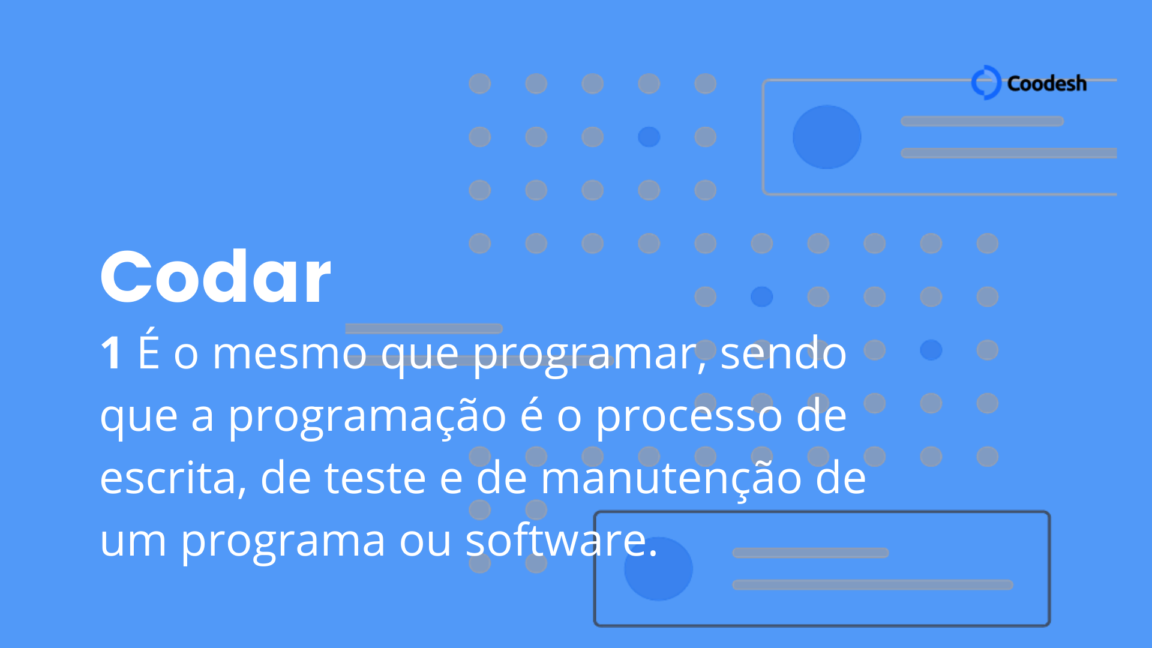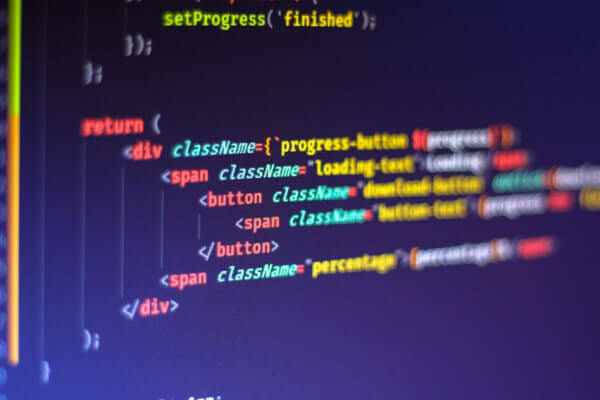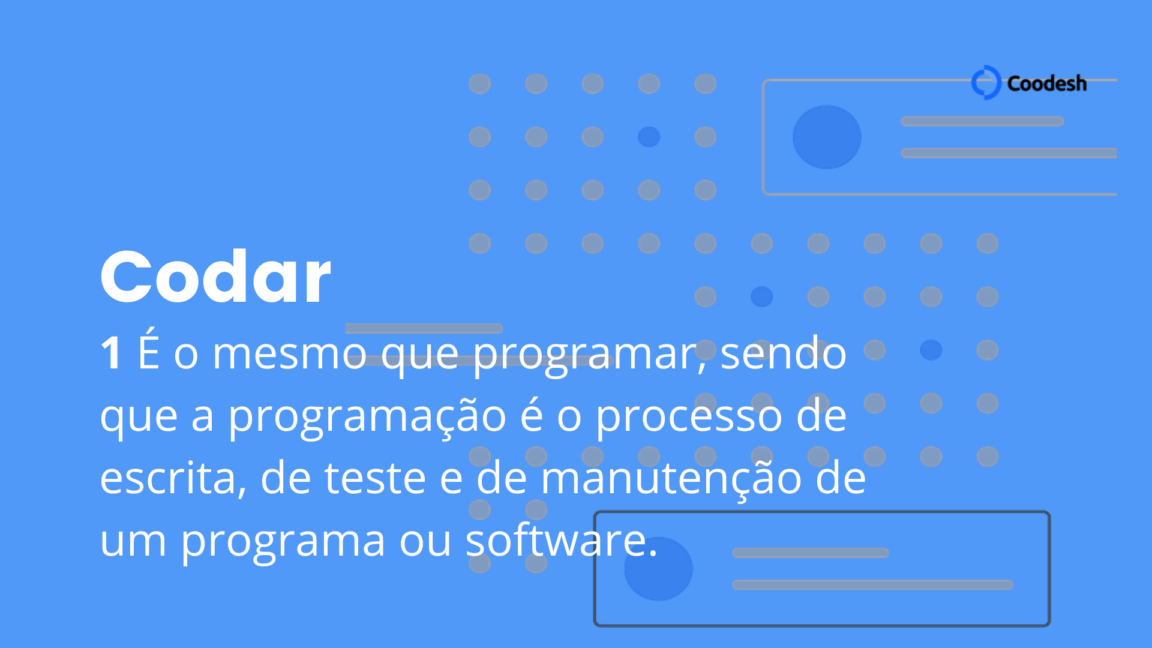
Welcome to Codar, the ultimate guide to coding and programming! Whether you’re a beginner or an experienced developer, this comprehensive resource is designed to help you master the art of coding and take your programming skills to the next level.
Our team of expert programmers and educators have carefully curated a collection of tutorials, articles, and exercises to guide you through your coding journey. Whether you’re interested in web development, game design, or machine learning, Codar has resources tailored to your interests and skill level. With step-by-step instructions and real-world examples, you’ll quickly grasp the concepts and techniques needed to become a proficient coder.
Benefits of Learning to Code

1. Enhances Problem-Solving Skills
Coding involves breaking down complex problems into smaller, more manageable parts. By learning to code, you develop a logical and analytical mindset that helps you solve problems more effectively. This skill is valuable not only in programming but also in various aspects of life and work.
2. Boosts Creativity
Coding is a creative process that allows you to bring your ideas to life. Whether you are building a website, developing a mobile app, or creating a game, coding gives you the freedom to express your creativity and build something unique. It encourages you to think outside the box and find innovative solutions to problems.
3. Expands Career Opportunities
4. Improves Logical Thinking
Coding involves following a set of logical steps to achieve a desired outcome. It requires you to think critically and logically, which enhances your problem-solving abilities. This logical thinking can be applied not only in programming but also in everyday life situations.
5. Fosters Collaboration
Coding is often a collaborative process, especially in larger projects. By learning to code, you develop skills in teamwork and communication. You learn how to work with others, share ideas, and contribute to a common goal. These collaboration skills are valuable in any professional setting.
6. Provides a Competitive Edge
In a competitive job market, having coding skills can give you an edge over other candidates. Employers value individuals who can code because they bring a unique set of skills to the table. By learning to code, you differentiate yourself from the competition and increase your chances of success.
Overall, learning to code offers numerous benefits, both personally and professionally. It enhances problem-solving skills, boosts creativity, expands career opportunities, improves logical thinking, fosters collaboration, and provides a competitive edge. Whether you are interested in pursuing a career in programming or simply want to develop a new skill, learning to code is a worthwhile investment of your time and effort.
Getting Started with Coding
1. Define Your Goals
2. Choose the Right Programming Language
Choosing the right programming language is crucial as it will determine the tools and resources you’ll need to learn. Some popular programming languages for beginners include Python, JavaScript, and Ruby. Research each language and consider factors such as ease of use, community support, and job opportunities.
3. Find Learning Resources
There are numerous resources available to help you learn coding, ranging from online tutorials to coding bootcamps. Look for resources that align with your learning style and goals. Online platforms like Codecademy, Udemy, and Coursera offer a wide range of coding courses for beginners.
4. Start with the Basics
Once you’ve chosen a programming language and gathered your learning resources, start with the basics. Familiarize yourself with the syntax and structure of the language. Learn how to write simple programs and understand fundamental concepts like variables, loops, and conditionals. Building a strong foundation will make it easier to tackle more complex coding tasks later on.
5. Practice, Practice, Practice
Coding is a skill that requires practice. As you learn new concepts, apply them by working on small coding projects. Practice regularly to reinforce your knowledge and improve your problem-solving skills. Consider joining coding communities or participating in coding challenges to gain real-world experience and receive feedback on your code.
6. Seek Help and Collaboration

Don’t be afraid to seek help when you encounter challenges or roadblocks. Join coding forums, attend meetups, or find a coding mentor who can guide you along your coding journey. Collaborating with others can also enhance your learning experience and expose you to different perspectives and approaches.
Remember, learning to code is a continuous process. Embrace the journey, stay curious, and never stop learning. With dedication and perseverance, you can become a proficient coder and unlock a world of possibilities.
Choosing the Right Programming Language
Next, consider the popularity and demand for the programming language. Some languages, like Python and JavaScript, are widely used and have a large community of developers. This means there are plenty of resources and support available if you run into any issues. Additionally, popular languages often have more job opportunities, which can be an important factor if you’re looking to pursue a career in coding.
Lastly, consider the community and support available for the programming language. Are there active forums, online communities, and meetups where you can connect with other developers? Having a strong support system can be invaluable when you’re starting out and facing challenges.
Why is it important?
Key concepts
There are several key concepts that you need to understand when learning the basics of programming:
- Variables: Variables are used to store and manipulate data in a program. They can hold different types of values, such as numbers, strings, or booleans.
- Control structures: Control structures allow you to control the flow of a program. They include conditional statements (if-else statements) and loops (for loops, while loops).
- Functions: Functions are blocks of reusable code that perform a specific task. They help in organizing code and making it more modular.
- Data types: Data types define the type of data that can be stored in a variable. Common data types include integers, floats, strings, and booleans.
- Operators: Operators are used to perform operations on data. They include arithmetic operators (+, -, *, /), comparison operators (==, !=, <, >), and logical operators (&&, ||).
How to learn the basics of programming
Learning the basics of programming can be done through various resources and methods. Here are a few steps to get started:
- Choose a programming language: Start by choosing a programming language that suits your goals and interests. Popular programming languages include Python, Java, and JavaScript.
- Take online courses or tutorials: Online courses and tutorials are a great way to learn the basics of programming. Websites like Codecademy, Coursera, and Udemy offer a wide range of programming courses for beginners.
- Practice coding: The more you practice coding, the better you will become. Start by solving simple coding problems and gradually move on to more complex projects.
- Join coding communities: Joining coding communities and forums can help you connect with other programmers and learn from their experiences. Websites like Stack Overflow and GitHub are great platforms for collaboration and learning.
- Read programming books: There are many books available that cover the basics of programming. Some popular titles include “Learn Python the Hard Way” by Zed Shaw and “Eloquent JavaScript” by Marijn Haverbeke.
Remember, learning the basics of programming takes time and practice. Be patient with yourself and don’t be afraid to ask for help when needed. With dedication and perseverance, you can develop a strong foundation in programming and unlock endless possibilities in the world of coding.
Mastering Data Structures and Algorithms
Data structures and algorithms are fundamental concepts in programming that every coder should master. They form the building blocks of efficient and optimized code, allowing developers to solve complex problems and create scalable applications.
Why are Data Structures and Algorithms Important?
Mastering data structures and algorithms allows programmers to:
- Optimize code execution time and memory usage
- Solve complex problems efficiently
- Design scalable and robust applications
- Improve code readability and maintainability
Types of Data Structures
There are various types of data structures, each with its own strengths and use cases. Some commonly used data structures include:
- Arrays: a collection of elements stored in contiguous memory locations
- Linked Lists: a sequence of nodes where each node contains data and a reference to the next node
- Stacks: a Last-In-First-Out (LIFO) data structure
- Queues: a First-In-First-Out (FIFO) data structure
- Trees: a hierarchical structure with a root node and child nodes
- Graphs: a collection of nodes connected by edges
- Hash Tables: a data structure that maps keys to values for efficient retrieval
Common Algorithms
Algorithms are step-by-step procedures for solving a specific problem. Some commonly used algorithms include:
- Sorting Algorithms: such as Bubble Sort, Insertion Sort, and Quick Sort
- Searching Algorithms: such as Linear Search, Binary Search, and Depth-First Search
- Graph Algorithms: such as Breadth-First Search, Depth-First Search, and Dijkstra’s Algorithm
- Dynamic Programming: a technique for solving complex problems by breaking them down into simpler subproblems
How to Master Data Structures and Algorithms
- Study and understand the concepts and principles behind each data structure and algorithm
- Implement them in your preferred programming language
- Practice solving problems using different data structures and algorithms
- Participate in coding competitions and challenges to test your skills
- Read books, articles, and online resources to deepen your knowledge
By continuously learning and practicing data structures and algorithms, you can become a proficient programmer capable of solving complex problems and creating efficient code.
Building Web Applications
Building web applications is an essential skill for any programmer or developer. With the increasing demand for online services and the growth of the internet, web applications have become a crucial part of our daily lives. Whether it’s a simple blog or a complex e-commerce platform, web applications allow users to interact with information and services through a web browser.
After building your web application, you can deploy it to a web server and make it accessible to users. This may involve configuring the server, setting up a domain name, and implementing security measures to protect user data. You should also consider optimizing your application for search engines and implementing analytics to track user behavior and performance.
Creating Mobile Apps
Mobile apps have become an essential part of our daily lives, providing us with convenience, entertainment, and access to information at our fingertips. If you’re interested in creating mobile apps, you’re in luck! There are plenty of resources and tools available to help you get started.
Next, you’ll need to familiarize yourself with the development environment and tools. For iOS, you’ll use Xcode, Apple’s integrated development environment (IDE), while for Android, you’ll use Android Studio. These tools provide a range of features to help you design, code, and test your mobile apps.
As you progress in your mobile app development journey, you’ll want to learn about app architecture and design patterns. This will help you create scalable and maintainable code, as well as improve the performance and user experience of your apps.
Finally, don’t forget to test your mobile apps on real devices and gather feedback from users. This will help you identify and fix any bugs or usability issues before releasing your app to the public.
Exploring Artificial Intelligence and Machine Learning
To get started with AI and ML, it is essential to have a solid foundation in programming and data analysis. Python is a popular programming language for AI and ML due to its simplicity and extensive libraries such as TensorFlow and PyTorch. Learning Python will enable you to write code to implement AI and ML algorithms effectively.
As you progress, you can explore more advanced topics in AI and ML, such as natural language processing, computer vision, and deep learning. These areas have significant potential for innovation and can lead to exciting career opportunities.
Cybersecurity refers to the practice of protecting computer systems, networks, and data from unauthorized access, damage, or theft. It involves implementing various measures, such as firewalls, encryption, and intrusion detection systems, to safeguard sensitive information and prevent cyber attacks.
The Importance of Cybersecurity and Ethical Hacking
With the increasing frequency and sophistication of cyber attacks, organizations and individuals need to prioritize cybersecurity. A single security breach can have severe consequences, including financial losses, reputational damage, and compromised customer data.
Continuing Education and Professional Development
To stay current in the field of cybersecurity and ethical hacking, it is essential to engage in continuous learning and professional development. The technology landscape is constantly evolving, and new threats and vulnerabilities emerge regularly.
There are numerous resources available for further learning, including online courses, certifications, and industry conferences. These resources can help you deepen your knowledge, learn new techniques, and stay up to date with the latest trends in cybersecurity and ethical hacking.
Remember, cybersecurity is a shared responsibility, and by staying informed and proactive, you can contribute to a safer digital environment for everyone.
Advancing Your Career in Coding and Programming
Continuing Education and Professional Development
One of the best ways to advance your career in coding and programming is to continue your education and pursue professional development opportunities. This can include attending workshops, conferences, and seminars related to your field of interest. By staying up-to-date with the latest trends and technologies, you can enhance your skills and knowledge, making yourself more marketable to potential employers.
Specialize in a Specific Programming Language or Technology
Another way to advance your career is to specialize in a specific programming language or technology. By becoming an expert in a particular area, you can differentiate yourself from other programmers and increase your chances of landing high-paying job opportunities. Whether it’s web development, mobile app development, or data science, focusing on a niche area can open doors to exciting career prospects.
Build a Strong Professional Network
Networking is crucial in any industry, and coding and programming are no exception. Building a strong professional network can help you gain access to job opportunities, mentorship, and valuable connections. Attend industry events, join online communities, and engage with fellow programmers to expand your network. By fostering relationships with like-minded professionals, you can stay informed about job openings and industry trends.
Showcase Your Work
In the world of coding and programming, your portfolio speaks louder than words. Employers want to see tangible evidence of your skills and capabilities. Create a portfolio website or GitHub repository where you can showcase your projects and demonstrate your expertise. This will not only impress potential employers but also serve as a valuable resource for your own professional growth.
Stay Curious and Keep Learning
Technology is constantly evolving, and as a programmer, it’s essential to stay curious and keep learning. Embrace new programming languages, frameworks, and tools to stay relevant in the industry. Take online courses, read books, and follow industry blogs to expand your knowledge. By continuously learning and adapting to new technologies, you can position yourself as a valuable asset in the ever-changing world of coding and programming.
Advancing your career in coding and programming requires dedication, continuous learning, and a passion for the field. By following these tips and staying committed to your professional growth, you can unlock exciting opportunities and take your career to new heights.
Resources for Further Learning
Online Learning Platforms
One of the most popular ways to learn coding and programming is through online learning platforms. Websites like Coursera, Udemy, and edX offer a wide range of courses taught by industry professionals. These platforms provide comprehensive learning materials, including video lectures, quizzes, and assignments, to help you master different programming languages and concepts.
Books and E-books
Additionally, many authors and industry experts offer e-books that can be downloaded and accessed on your preferred device. These e-books often focus on specific programming languages or technologies, allowing you to delve into a particular area of interest.
Online Communities and Forums
Being part of an online community or forum can be invaluable for further learning in coding and programming. Websites like Stack Overflow and GitHub provide platforms for developers to ask questions, share knowledge, and collaborate on projects. These communities are filled with experienced programmers who are willing to help and provide guidance. Participating in discussions and contributing to open-source projects can enhance your skills and expose you to different coding techniques and best practices.
Coding Bootcamps
Some popular coding bootcamps include General Assembly, Flatiron School, and Le Wagon. These bootcamps offer both in-person and online options, catering to different learning preferences and schedules.

Over the years, I have amassed a wealth of experience and knowledge, which I eagerly share with fellow radio aficionados. Through my writing and active participation in the amateur radio community, I strive to inspire others and provide valuable insights into this fascinating hobby. Engaging in various radio activities, I continue to learn and grow, constantly amazed by the endless possibilities that radio communication offers.

